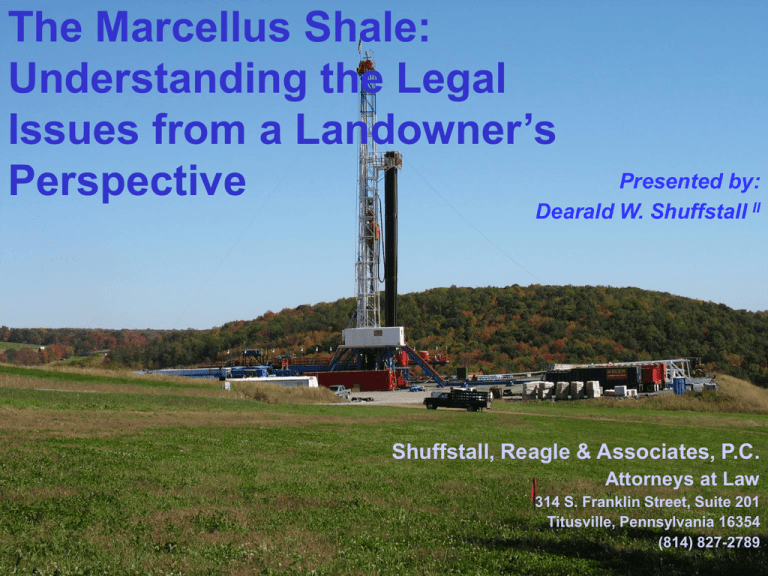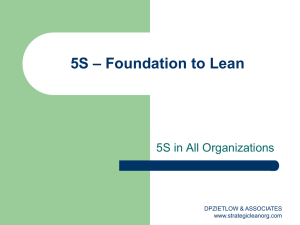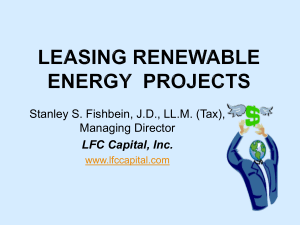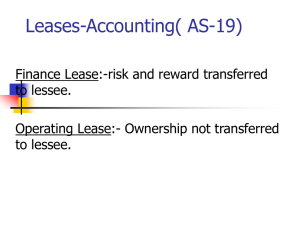
The Marcellus Shale:
Understanding the Legal
Issues from a Landowner’s
Perspective
Presented by:
Dearald W. Shuffstall II
Shuffstall, Reagle & Associates, P.C.
Attorneys at Law
314 S. Franklin Street, Suite 201
Titusville, Pennsylvania 16354
(814) 827-2789
What is the Marcellus?
Copyright 2010 All Rights Reserved – Shuffstall, Reagle & Associates, P.C.
(Except as to Original Graphics and Content)
The Marcellus Formations in PA
Copyright 2010 All Rights Reserved – Shuffstall, Reagle & Associates, P.C.
(Except as to Original Graphics and Content)
The Marcellus “Fairway”
Copyright 2010 All Rights Reserved – Shuffstall, Reagle & Associates, P.C.
(Except as to Original Graphics and Content)
It’s a GREAT Time to get Started in the
Marcellus!
Copyright 2010 All Rights Reserved – Shuffstall, Reagle & Associates, P.C.
(Except as to Original Graphics and Content)
Pennsylvania Active Rig Count
Vertical Exploratory Stage Over—Horizontal Production Phase Now In Full Play
Copyright 2010 All Rights Reserved – Shuffstall, Reagle & Associates, P.C.
(Except as to Original Graphics and Content)
Marcellus Shale Permits Issued & Wells
Drilled 1st quarter 2010
Copyright 2010 All Rights Reserved – Shuffstall, Reagle & Associates, P.C.
(Except as to Original Graphics and Content)
Marcellus Shale Permits Issued & Wells
Drilled 2010 YTD through August
Copyright 2010 All Rights Reserved – Shuffstall, Reagle & Associates, P.C.
(Except as to Original Graphics and Content)
Horizontal Development
The Marcellus “Pitchfork”
Copyright 2010 All Rights Reserved – Shuffstall, Reagle & Associates, P.C.
(Except as to Original Graphics and Content)
Gas Leasing from a
Landowner’s Perspective
Copyright 2010 All Rights Reserved – Shuffstall, Reagle & Associates, P.C.
(Except as to Original Graphics and Content)
Gas Leasing - How does it work?
• Typically, representatives from a gas producing company
will contact the owners of the OGM (Oil, Gas and Mineral)
rights in a location where the gas producer wishes to
explore and, hopefully, produce.
• The owner of the OGM rights may not be the owner of the
surface estate.
Copyright 2010 All Rights Reserved – Shuffstall, Reagle & Associates, P.C.
(Except as to Original Graphics and Content)
Gas Leasing - How does it work?
• The gas company representative may be an employee of the
gas company or, more commonly, a professional Landman.
Regardless, ask to see his or her credentials.
• In the case of a professional Landman, ask for proof of his
membership in the American Association of Professional
Landmen.
• In the unlikely case of a gas company employee, ask for
details about the company such as how many Marcellus wells
it has drilled, how many are currently in production, etc.
Copyright 2010 All Rights Reserved – Shuffstall, Reagle & Associates, P.C.
(Except as to Original Graphics and Content)
Gas Leasing - How does it work?
• If you are approached by someone other than a professional
Landman, exercise increased caution and scrutiny.
• Be extra cautious where the instrument presented is
something other than a true oil and gas lease. Watch for
words like “option,” “option agreement” and “marketing
agreement” in the title.
Copyright 2010 All Rights Reserved – Shuffstall, Reagle & Associates, P.C.
(Except as to Original Graphics and Content)
“Option” or “Marketing” Agreements
• “Wal-Mart logic” – add your acreage to theirs to increase the
collective bargaining power…
• Peer pressure/fear of being excluded…
• The landowner authorizes the marketer to try to lease the
OGMs to undisclosed third parties in return for a percentage of
any up-front monies paid by the third party upon execution of a
lease.
• The landowner is assured minimum per-acre up-front monies
and minimum royalty percentages if a lease is successfully
executed, both of which are typically reasonable.
Copyright 2010 All Rights Reserved – Shuffstall, Reagle & Associates, P.C.
(Except as to Original Graphics and Content)
“Option” or “Marketing” Agreements
• Many landowners are primarily interested in these two
economic provisions and sign them.
• HOWEVER – the “option” or “marketing” agreements typically
include a form lease attached as an exhibit. By executing the
option or marketing agreement the landowner forfeits any
ability to negotiate any other lease terms.
• These agreements may be useful to attract interest on the
part of a gas producer sooner, but be sure to exercise
heightened scrutiny and caution when presented with them.
Copyright 2010 All Rights Reserved – Shuffstall, Reagle & Associates, P.C.
(Except as to Original Graphics and Content)
Basic Lease Clauses - Economics
• Landowners are typically drawn first to the “economics” of the
proposed lease.
• Bonus: A one-time payment to induce a landowner to sign a
lease. Ranges greatly from a few hundred dollars per acre to
upwards of $6,500.00 per acre.
• Delay Rental: A payment made by a lessee to hold the lease
while deferring drilling. Typically expressed as a price per acre
per year in the primary term of the lease.
• Royalty: Recurring payments reflecting a share of production.
Statutory minimum is a 1/8 interest, or 12.5%. Higher royalties between 15% and 20% - have been negotiated.
Copyright 2010 All Rights Reserved – Shuffstall, Reagle & Associates, P.C.
(Except as to Original Graphics and Content)
Basic Lease Clauses –Economics
• Note: where drilling and production never occur on a
lease, the bonus and delay rental payments constitute the
bulk of the value the landowner will receive.
• HOWEVER, where production occurs, the royalty payment
income stream represents the lion’s share of the economic
value paid to the landowner.
Copyright 2010 All Rights Reserved – Shuffstall, Reagle & Associates, P.C.
(Except as to Original Graphics and Content)
Basic Lease Clauses – Term
Typically, an oil and gas lease has 2 terms:
1) a PRIMARY term for a stated number of years during
which the lessee has no duty to drill and for which
DELAY RENTAL is paid; and
2) A SECONDARY term that lasts from when production
is achieved “for so long thereafter as oil or gas or
either of them are produced in paying quantities.”
These terms are negotiable.
Copyright 2010 All Rights Reserved – Shuffstall, Reagle & Associates, P.C.
(Except as to Original Graphics and Content)
Basic Lease Clauses – Term
Gas leases extending the primary term take your property off the
market for longer periods of time, be sure to factor this in when
evaluating the adequacy of bonus payment and delay rental offers.
Trend – extend the primary term and front-load the bonus, delay and
other damage payments into a “paid-up” lease. Not the best for the
OGM owner.
• If no drilling occurs, the lease lapses at the end of the primary
term.
• If drilling occurs during the primary term, the secondary term is
triggered.
Trend – strange and unusual language is added to the secondary
term to perpetuate the lease beyond production. Very bad for the
OGM owner.
Copyright 2010 All Rights Reserved – Shuffstall, Reagle & Associates, P.C.
(Except as to Original Graphics and Content)
Other Important Lease Clauses
NOTE: Many of these lease clauses will not appear in a draft oil and
gas lease first offered by a gas producer. They require specific
negotiation.
Mother Hubbard clause - states the lease includes all lands of
Lessor whether adjacent to the leasehold or not (generally, adds
land not specifically described in the lease)
Unitization clause – the acreage under the lease is added to or
unitized with other lease acreage. Production on any acreage within
the unit holds all leases within the unit by production, even if no
production ever occurs on some acreage within the unit.
“Pugh” clause – provides the landowner with some relief in the event
that some of his or her acreage is not unitized.
Copyright 2010 All Rights Reserved – Shuffstall, Reagle & Associates, P.C.
(Except as to Original Graphics and Content)
Other Important Lease Clauses
Access easements – provide for the right to enter upon the property
for purposes of the lease.
Location of roadways, pipelines, well sites, etc. - Unless negotiated
by the OGM owner they will be at the discretion of the lessee.
Best practices – commits Lessee to utilize industry best practices in
development of the lease (e.g. horizontal, not vertical, Marcellus
wells)
Arbitration provision
Non-disturbance clause – Prohibits surface access to the property
(except possible seismic testing).
Copyright 2010 All Rights Reserved – Shuffstall, Reagle & Associates, P.C.
(Except as to Original Graphics and Content)
Other Important Lease Clauses
Pipeline easements - Provide the right to install, construct, lay, maintain,
operate etc. These are necessary to get gas to market BUT they can
be overly broad; OGM owners (especially those who also own the
surface) may wish to limit the number, size, location, etc.
Timber, crop damage clauses – compensates the owner of the surface
for damages to timber, standing crops, fences, etc. cause by production
activities.
Gas storage clauses – give the lessee the right to store gas on the
property, even if that gas was produced elsewhere. These clauses
should be carefully examined, particularly when the secondary term of
the lease is linked to the gas storage clause.
Copyright 2010 All Rights Reserved – Shuffstall, Reagle & Associates, P.C.
(Except as to Original Graphics and Content)
Other Important Lease Clauses
Water rights – The lessee’s right of access to and use of water on the
premises, if any, should be addressed. Issues pertaining to water
quality monitoring and responsibility in the event of contamination
should be addressed as well.
Assignment – most gas leases are assignable, and for good reasons
which the lessee may require. However, it is reasonable to require the
lessee to give Lessor notice of the assignment.
Depth horizon limitations – There are a number of formations in
Pennsylvania capable of producing oil or gas or both. Development in
a particular area is often within a particular formation (for example, the
Marcellus). Limit the formation for which the oil and gas lease applies
to preserve future rights in the development other formations.
Copyright 2010 All Rights Reserved – Shuffstall, Reagle & Associates, P.C.
(Except as to Original Graphics and Content)
Other Important Lease Clauses
Royalty calculation methods - Describes what costs may be
subtracted from the royalty to be paid to the Lessor. These costs
can be significant and can result in a significant reduction in the
royalties paid to Lessor over time.
End of lease provision – Requires lessee to record an instrument
which indicates the expiration of the lease.
Spud fees - Provides compensation for surface damages caused by
well sites being located on the property.
Setbacks – Specification of setbacks from buildings, ponds,
streams, and wetlands.
Copyright 2010 All Rights Reserved – Shuffstall, Reagle & Associates, P.C.
(Except as to Original Graphics and Content)
Other Important Lease Clauses
Information – Lessee must provide Lessor with a copy of the drill site
plan, MSDS sheet, production records, etc. upon request
Free Gas/Payment in Lieu of free gas
Bonds/well plugging insurance – Provide for source of payment for
well-plugging in lessee is unable to do so when the gas runs out
Land restoration – Provide specific requirements for reforestation,
slope restoration, wildlife food plots, etc.
Taxes/tax penalty provisions – Require the lessee to compensate the
Lessor for any penalty imposed as a result of a change in use of the
property under Clean and Green, CREP, etc.
Copyright 2010 All Rights Reserved – Shuffstall, Reagle & Associates, P.C.
(Except as to Original Graphics and Content)
Other Important Lease Clauses
Shut-in clauses – Define whether and on what terms a well may be
“shut-in” or production intentionally stopped temporarily.
Payment provisions – Require cashier’s or certified checks, no
DRAFTS
Disposal of water – OMG owners should require that water used in
the drilling and production processes be disposed of off-site and in
accordance with applicable state and federal environmental laws and
regulations.
Transportation rights – These provide the right to construct, operate,
maintain and repair gas transportation pipelines, pump stations
etc. Landowners should avoid granting transportation rights or
negotiate them separately for additional compensation
Copyright 2010 All Rights Reserved – Shuffstall, Reagle & Associates, P.C.
(Except as to Original Graphics and Content)
Other Important Lease Clauses
Indemnification – Recommended for Landowner protection, these
clauses require that the Company indemnify Landowner from any and
all claims and costs arising from Company’s operations, including
attorneys’ fees.
Removal/forfeiture of equipment at end of lease – Require Company
to remove its equipment at the end of the lease or forfeit it .
Severance tax – Allocation of any severance tax which may be
imposed by the Commonwealth. Commonly, the Landowner pays tax
only on that portion of the gas removed for which Landowner is paid a
royalty.
Real estate taxes – Allocates the liability for payment of real estate
taxes on the premises together with any future increase in real estate
taxes.
Copyright 2010 All Rights Reserved – Shuffstall, Reagle & Associates, P.C.
(Except as to Original Graphics and Content)
Watch Out For:
• Bad leases – some are not even leases at all but rather are
conveyances of the entire OGM interest. Sometimes for as little
as a few hundred dollars an acre
– Even when a Landowner challenges a bad lease and wins it
takes considerable money and time (in which interest in
producing the property may have come and gone).
•
•
•
•
•
Pushy Company representatives
“standard form of contract” = the Willy Wonka approach
Peer pressure/threat of being left behind
Marketing/option agreements
Speculators interested in acquiring your OGM rights at discount
Copyright 2010 All Rights Reserved – Shuffstall, Reagle & Associates, P.C.
(Except as to Original Graphics and Content)
Special Issues in NW PA
• Existing leases – “heaven to hell”
– Are they still good? Consult with an attorney.
• Temptation on part of smaller operators to produce from the
Marcellus using cheaper traditional vertical methods under
existing leases
• Non-production, expiration of leases not documented of
record
Copyright 2010 All Rights Reserved – Shuffstall, Reagle & Associates, P.C.
(Except as to Original Graphics and Content)
Conclusion – So what do I do?
• Know who you are dealing with – is he or she a professional
Landman. Ask for credentials.
• Know what it is you are being asked to sign. Is it a lease or a
marketing agreement?
• Take the document to a qualified lawyer for review. Only lawyers
are licensed to advise you concerning your legal rights under these
agreements, and to negotiate these instruments on your
behalf. Only lawyers carry legal malpractice insurance to provide a
fund for your recovery in the event that you receive bad advice.
• Choose your attorney wisely. Inquire about that attorney’s
experience in dealing with oil and gas leases. Ask whether or not
the attorney has malpractice insurance and if so what the limits of
that insurance are.
Copyright 2010 All Rights Reserved – Shuffstall, Reagle & Associates, P.C.
(Except as to Original Graphics and Content)
Conclusion – So what do I do?
• Consider using a consultant. Consultants, while not lawyers, can
be an invaluable source of information to you and to your
attorney in maximizing the “economic” provisions of your lease,
particularly where the consultant has recent experience and
knowledge of the current leasing environment in the area.
• BUT: check their credentials too! Self-proclaimed experts are
coming out of the woodwork in other parts of the commonwealth,
claiming expertise because they once signed a lease as a
landowner…we are fortunate in our area to have seasoned
veterans who are capable of bringing depth of knowledge of the
industry to the table.
Copyright 2010 All Rights Reserved – Shuffstall, Reagle & Associates, P.C.
(Except as to Original Graphics and Content)
Conclusion – So what do I do?
• Involve your tax planning professionals and investment advisers
early.
• There are significant and distinct potential tax ramifications
involved with signing a lease, receiving up-front lease payments
and receiving royalty payments over a significant period of time.
• You will want an investment adviser to help counsel you
regarding how best to invest the income you receive from your
lease. Choose these professionals wisely as well, making sure
that they understand and have experience with oil and gas lease
issues.
• If you do not have a tax planning adviser or investment adviser
with specific experience in this field, your oil and gas attorney
should be able to refer you to one.
Copyright 2010 All Rights Reserved – Shuffstall, Reagle & Associates, P.C.
(Except as to Original Graphics and Content)
Conclusion – So what do I do?
• Update your estate plan, or prepare one if you don’t have
one. Your oil and gas attorney may be able to assist you with
this as well, if he or she has experience with complicated
estate planning issues pertaining to oil and gas leases and
income streams. The potential tax ramifications to you and to
your family in NOT revising your estate plan could be
significant. Through the use of Family Limited Partnerships,
Trusts or other planning tools, maximize the wealth that you
pass on to your family while minimizing your tax bill.
• www.naro-us.org
Copyright 2010 All Rights Reserved – Shuffstall, Reagle & Associates, P.C.
(Except as to Original Graphics and Content)
The Marcellus Shale:
Understanding the Legal
Issues from a Landowner’s
Presented by:
Perspective
Dearald W. Shuffstall
II
Shuffstall, Reagle & Associates, P.C.
Attorneys at Law
314 S. Franklin Street, Suite 201
Titusville, Pennsylvania 16354
(814) 827-2789







